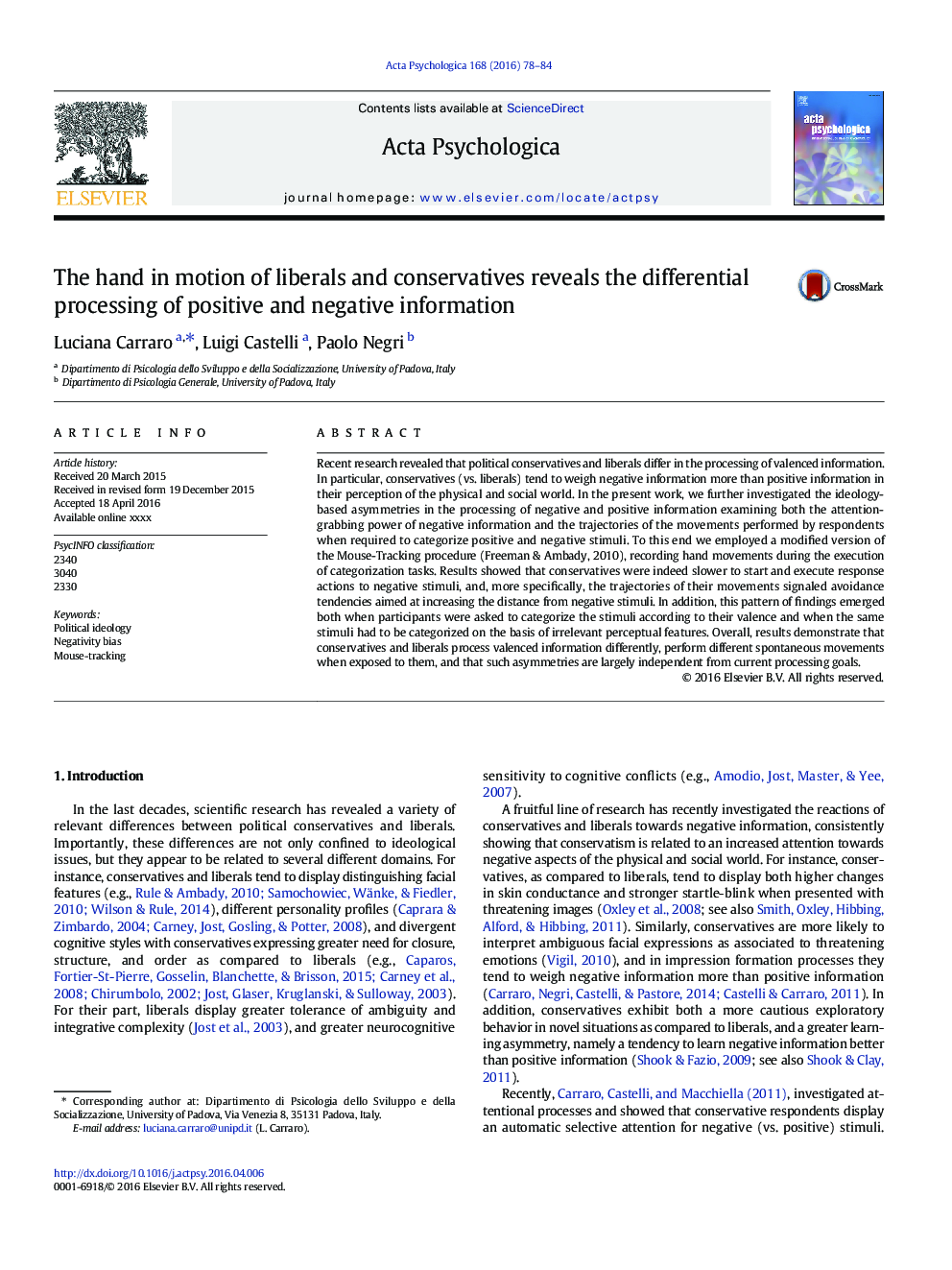| Article ID | Journal | Published Year | Pages | File Type |
|---|---|---|---|---|
| 7277068 | Acta Psychologica | 2016 | 7 Pages |
Abstract
Recent research revealed that political conservatives and liberals differ in the processing of valenced information. In particular, conservatives (vs. liberals) tend to weigh negative information more than positive information in their perception of the physical and social world. In the present work, we further investigated the ideology-based asymmetries in the processing of negative and positive information examining both the attention-grabbing power of negative information and the trajectories of the movements performed by respondents when required to categorize positive and negative stimuli. To this end we employed a modified version of the Mouse-Tracking procedure (Freeman & Ambady, 2010), recording hand movements during the execution of categorization tasks. Results showed that conservatives were indeed slower to start and execute response actions to negative stimuli, and, more specifically, the trajectories of their movements signaled avoidance tendencies aimed at increasing the distance from negative stimuli. In addition, this pattern of findings emerged both when participants were asked to categorize the stimuli according to their valence and when the same stimuli had to be categorized on the basis of irrelevant perceptual features. Overall, results demonstrate that conservatives and liberals process valenced information differently, perform different spontaneous movements when exposed to them, and that such asymmetries are largely independent from current processing goals.
Related Topics
Life Sciences
Neuroscience
Cognitive Neuroscience
Authors
Luciana Carraro, Luigi Castelli, Paolo Negri,
